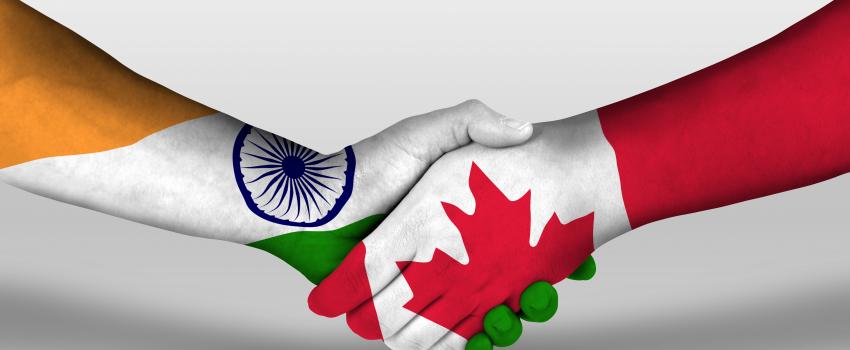Are you looking for how to immigrate to Canada from India? You’re not alone, as thousands of Indians choose to make Canada their home every year. Known for its high living standards, robust economy, and excellent healthcare and education systems, it’s no wonder Canada is an attractive destination for immigration. In this blog post, we’ll discuss different immigration routes from India, along with the processes and requirements involved in each. So, if you’re wondering how to immigrate to Canada from India, read on to find your ideal path.
How to immigrate to Canada from India in 2023
Express Entry System:
The Express Entry System is the most popular and fastest way for skilled workers to immigrate to Canada from India. It is an online, points-based system that assesses applicants based on factors such as age, education, work experience, and language proficiency in English and/or French. The three main programs under the Express Entry System are:
- Federal Skilled Worker Program (FSWP)
- Federal Skilled Trades Program (FSTP)
- Canadian Experience Class (CEC)
To apply for any of these programs, you’ll need to create an Express Entry profile and meet the eligibility requirements. High-ranking candidates are invited to apply for permanent residency during regular draws.
Provincial Nominee Program (PNP):
The Provincial Nominee Program is designed for applicants who have the skills, education, and work experience needed to contribute to a specific province’s economy. Each Canadian province and territory (except Quebec) has its PNP with unique eligibility criteria and streams. Some popular PNPs for Indian immigrants are:
- British Columbia Provincial Nominee Program (BC PNP)
- Alberta Immigrant Nominee Program (AINP)
- Saskatchewan Immigrant Nominee Program (SINP)
- Manitoba Provincial Nominee Program (MPNP)
- Ontario Immigrant Nominee Program (OINP)
To apply for a PNP, you must submit an Expression of Interest (EOI) to your chosen province. If you are nominated, you can then apply for permanent residency through the federal government.
Family Sponsorship Program:
The Family Sponsorship Program allows Canadian citizens and permanent residents to sponsor their eligible family members for permanent residency in Canada. Eligible family members include:
- Spouse, common-law partner, or conjugal partner
- Dependent children
- Parents and grandparents
The sponsor must meet certain financial requirements to demonstrate their ability to support the sponsored family member(s) for a specified period.
Study Permit and Post-Graduation Work Permit:
Many Indian students choose to study in Canada, which can eventually lead to permanent residency. To study in Canada, you’ll need a valid study permit. After completing your studies, you may be eligible for a Post-Graduation Work Permit (PGWP), which allows you to work in Canada for a period equivalent to the length of your study program (up to a maximum of three years). Gaining Canadian work experience through a PGWP can increase your chances of obtaining permanent residency through the Canadian Experience Class or a PNP.
Temporary Work Permits:
A temporary work permit allows Indian nationals to work in Canada for a specific period. To apply for a work permit, you generally need a job offer from a Canadian employer and a positive Labour Market Impact Assessment (LMIA). Some work permit categories, like the Global Talent Stream and International Experience Canada, are LMIA-exempt. Gaining Canadian work experience can help you qualify for permanent residency under the Canadian Experience Class or a PNP.
Business Immigration:
Canada encourages entrepreneurship and business investment through various business immigration programs. Indian entrepreneurs and investors can explore the following options:
- Start-up Visa Program: This program targets innovative entrepreneurs who can create new businesses, generate employment, and compete globally.
- Self-Employed Persons Program: This program is designed for self-employed individuals with relevant experience in cultural, athletic, or farming activities.
- Provincial Business Immigration Programs: Several provinces have their business immigration streams that cater to investors, entrepreneurs, and self-employed individuals.
Each business immigration program has unique eligibility criteria and investment requirements.
Additional Tips for a Smooth Immigration Process:
- Language proficiency: Proficiency in English or French is crucial for most immigration programs. Improve your language skills and take a recognized language test like IELTS (for English) or TEF (for French) to increase your chances of success.
- Education Credential Assessment (ECA): Obtain an ECA from a designated organization to verify the equivalency of your educational credentials to Canadian standards.
- Research and plan: Thoroughly research the various immigration programs and their requirements to choose the one that best suits your profile.
- Prepare your documents: Ensure you have all necessary documents, including your passport, birth certificate, educational transcripts, work experience letters, and police clearance certificates, ready before applying.
- Consult an immigration expert: If you’re unsure about the immigration process or need assistance, consider seeking the advice of a reputable immigration consultant or lawyer.
The above shows different routes on how to immigrate to Canada from India, and it’s time to determine the best option for your circumstances and start preparing your application. Canada offers numerous opportunities for skilled professionals, students, and business people alike, making it a desirable destination for Indian immigrants. By following the tips in this guide and staying informed about the latest immigration updates, you’ll be well on your way to making your Canadian dream a reality.

